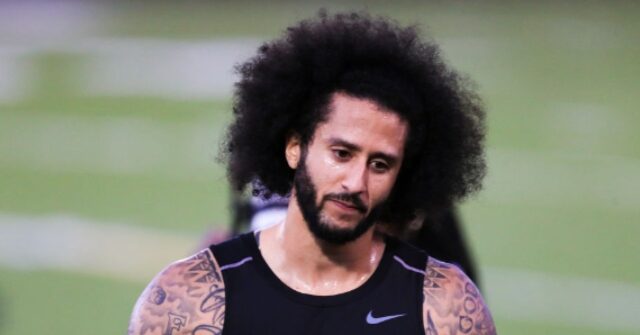Colin Kaepernick, the former NFL quarterback, has resurfaced in the spotlight as he accuses Donald Trump of deliberately targeting him following his protests during the national anthem, which began in the 2016 season. Kaepernick’s stance—kneeling during the anthem to protest police brutality and systemic racism—ignited intense debate and backlash from segments of the American public. His comments came during an appearance on The Future of Everything podcast hosted by the Wall Street Journal, where he reflected on his final season in the NFL and the growing pressure he faced from patriotic Americans discontent with his actions, including Trump, who had just assumed the presidency. Kaepernick expressed disappointment about how Trump and others focused their criticism on his individual protests instead of the broader issues they were meant to highlight.
Kaepernick highlighted a specific instance from March 2017 when Trump mocked the NFL’s decision not to sign him, suggesting teams wanted to avoid his ire on social media. During a rally in Louisville, Trump stated, “They don’t want to get a nasty tweet from Donald Trump. Do you believe that?” This moment underscored the influence that the then-sitting president wielded over public opinion and corporate decisions, with Kaepernick arguing that it reflected a larger effort to mute dissenting voices in America. Kaepernick believes that this focus on individual actions, particularly his own, detracted from discussions about the issues at hand—systemic racism and police brutality—and illustrated how powerful figures could intimidate individuals who advocate for social change.
Moreover, Kaepernick criticized Trump’s use of his platform to minimize his protests and aspirations, emphasizing that such targeting of an individual citizen was concerning. He posited that this moment in history is reflective of broader societal challenges that persist today. Kaepernick asserted that it was vital to consider the implications of having a leader exploit their power to undermine someone fighting for equality, a dynamic that parallels ongoing issues in society. His commentary serves not only as a reflection on his own experiences but also as a critique of the political environment that often dismisses the voices of marginalized communities in favor of maintaining the status quo.
Kaepernick’s remarks also extended to discussing the civil unrest following the death of George Floyd in May 2020, which reignited nationwide protests against police violence and systemic racism. He framed the central question of these movements as whether people should be allowed to live without the fear of death or discrimination based on their identity, a query that underscores the urgency of the issues he raises. The protests sparked by Floyd’s death were seen by Kaepernick as acknowledgment of systemic injustices that necessitate collective action and reevaluation of societal structures, which he believes should prioritize the safety and rights of all individuals irrespective of race or background.
While Kaepernick has been largely absent from professional football since becoming a free agent in 2017, he reached a settlement with the NFL in 2019 concerning his grievance against the league for colluding to keep him unsigned because of his protests. Kaepernick claims he is still in peak physical condition and remains ready to play, although he has chosen to speak more publicly and politically in recent years, framing the NFL’s selection process for players as reminiscent of a “slave market.” This characterization of the league reflects his broader critique of how systemic racism affects both sports and society at large, highlighting the need for change across various sectors.
Through his activism and public statements, Kaepernick continues to spark conversations about social justice, systemic inequality, and the role of public figures in addressing these issues. His journey from a professional athlete to a civil rights advocate illustrates the intersection of sports and activism, capturing the attention of both supporters and critics. Kaepernick’s experience reveals the intricate relationship between politics, celebrity, and the quest for racial equality in America, encouraging ongoing discourse around the responsibilities of individuals in positions of influence to address injustices while facing the repercussions of such actions in a polarized political climate.

